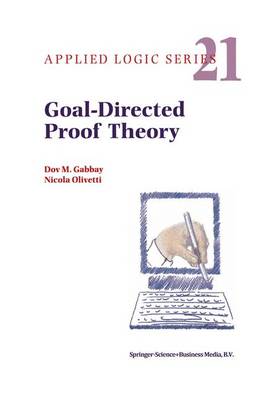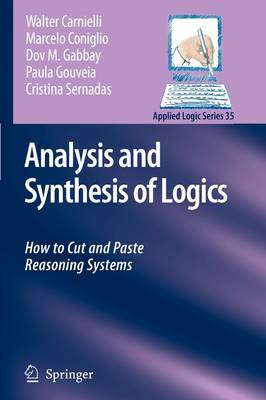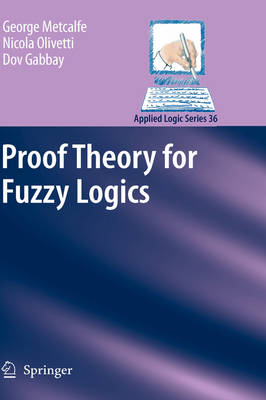Applied Logic
3 primary works
Book 21
Readership: Computer scientists, mathematicians and philosophers, and anyone interested in the automation of reasoning based on non-classical logics. The book is suitable for self study, its only prerequisite being some elementary knowledge of logic and proof theory.
Book 35
Analysis and Synthesis of Logics
by Walter Carnielli, Marcelo Coniglio, Dov M. Gabbay, Paula Gouveia, and Cristina Sernadas
Starting with simple examples showing the relevance of cutting and pasting logics, the monograph develops a mathematical theory of combining and decomposing logics, ranging from propositional and first-order based logics to higher-order based logics as well as to non-truth functional logics. The theory covers mechanisms for combining semantic structures and deductive systems either of the same or different nature. The issue of preservation of properties is addressed.
Book 36
Proof Theory for Fuzzy Logics
by George Metcalfe, Nicola Olivetti, and Dov M. Gabbay
Fuzzy logics are many-valued logics that are well suited to reasoning in the context of vagueness. They provide the basis for the wider field of Fuzzy Logic, encompassing diverse areas such as fuzzy control, fuzzy databases, and fuzzy mathematics. This book provides an accessible and up-to-date introduction to this fast-growing and increasingly popular area. It focuses in particular on the development and applications of "proof-theoretic" presentations of fuzzy logics; the result of more than ten years of intensive work by researchers in the area, including the authors. In addition to providing alternative elegant presentations of fuzzy logics, proof-theoretic methods are useful for addressing theoretical problems (including key standard completeness results) and developing efficient deduction and decision algorithms. Proof-theoretic presentations also place fuzzy logics in the broader landscape of non-classical logics, revealing deep relations with other logics studied in Computer Science, Mathematics, and Philosophy. The book builds methodically from the semantic origins of fuzzy logics to proof-theoretic presentations such as Hilbert and Gentzen systems, introducing both theoretical and practical applications of these presentations.


